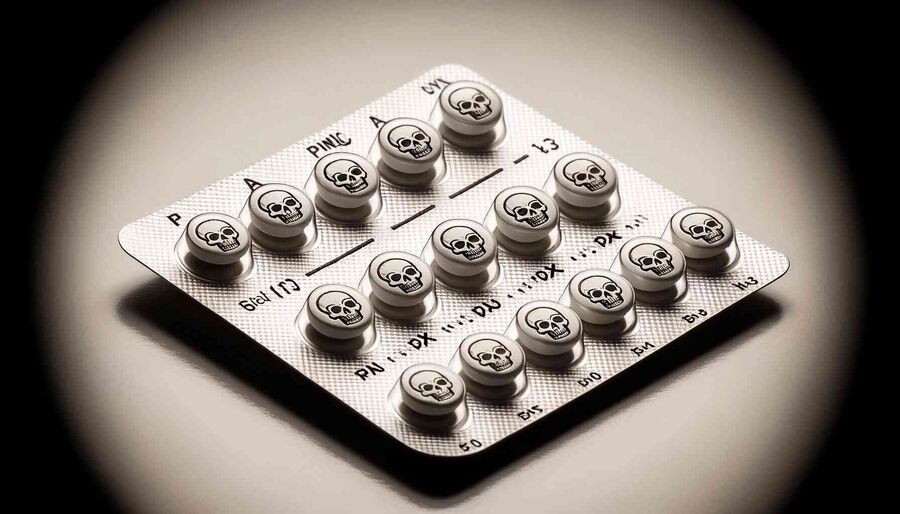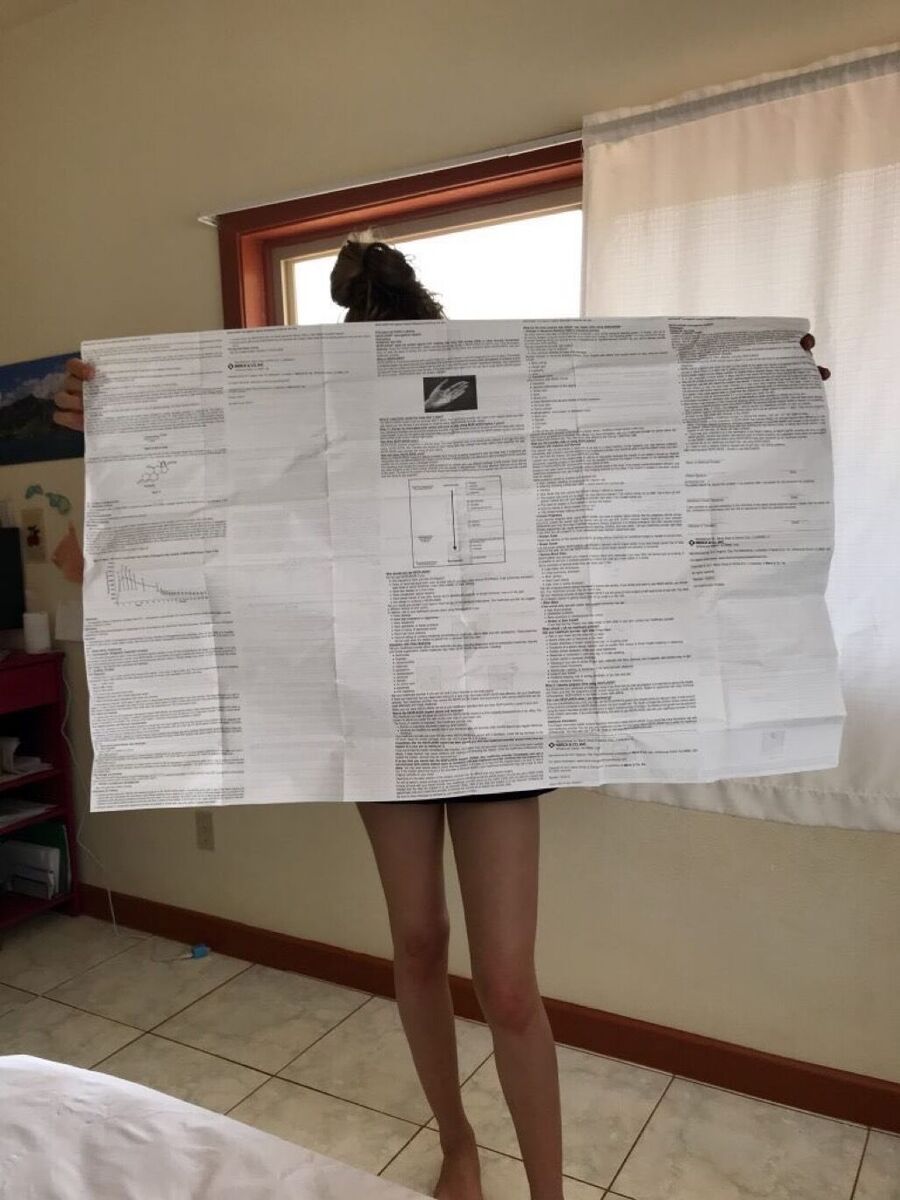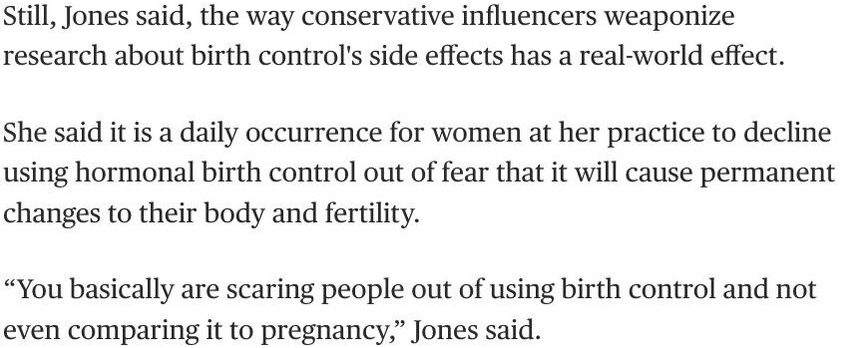Why can’t we talk about how the birth control pill is harming women?
There is no question about it: hormonal birth control increases the risk of depression, suicidal ideations, and suicide for women. Yet mainstream media outlets such as NBC have labeled myself and other women who speak about this research as “alarmists.” Why? It seems allowing women to access all of the information about the birth control pill threatens a “greater good” agenda being pushed.

For anybody who knows the history of birth control, this secrecy and deliberate concealment of the dangers of the medication have characterized the pill from its conception, no pun intended. NPR journalist Erin Blakemore described the birth control pill’s past as “one intertwined with eugenics and colonialism,” and that’s no exaggeration. Puerto Rican women were given the pill en mass without being told they were participating in a trial and without any warning of the side effects. The deaths, of which there were many, of the women during these trials were never investigated.
Margaret Sanger, who is responsible for the creation of the birth control pill, chose Puerto Rico specifically because of its overpopulation and poverty “issue“. Others such as Procter & Gamble heir and American eugenicist Clarence Gamble, had already been working on the sterilization of Puerto Rican women, “Ultimately, approximately one-third of Puerto Rican women were sterilized.”
Decades later, male birth control studies had to be discontinued when men experienced the same side effects as women. The side effects that millions of women are enduring every day as a result of the birth control pill such as depression, mood swings, pain, and acne, were deemed “too severe” for men. Yet, much like the Puerto Rican women used as guinea pigs, millions of U.S. women are placed on birth control for decades with little to no education on the short and long-term side effects, including suicide. Not to mention the ever-growing number of children as young as 12 years old being placed on the pill.
I was placed on the pill at just 14 years old for acne. A few months later, I saw my first-ever therapist despite no prior history of depression. Shortly after that, I was placed on an SSRI. Each time I would talk to my doctors about my deteriorating psychic health, not a single one in nearly a decade of being on the pill suggested that it may in fact be the hormones I was taking every single day. In retrospect, after being on birth control for nearly a decade, being placed on the pill for acne was akin to killing a mouse with a rocket launcher. Though my anecdote is a story for another time, it is far from unique. Hundreds of thousands of women across the United States and the world have had a similar experience to mine – feeling completely out of their mind on a pill their doctor told them was “harmless.”
Other women are placed on the pill for conditions like cysts and endometriosis, which is a nonissue if those women feel like the trade-off is worth it. However, that trade-off is impossible to analyze without informed consent. That brings us back to this NBC article by Kat Tenbarge, who, on the surface, appears to be advocating for “women’s rights” by protecting the sacred birth control pill.
So NBC and other media outlets, who have ignored honest coverage of the issue, this is a message for you: on behalf of the millions of other women duped into propping up a system that has led to the decline of women’s happiness and normalizes a lack of informed consent for women.
Many people, including myself, who have been outspoken about the risks of birth control in pill form, have been highlighting a 2018 Dutch study that emphasizes the increased risk of depression and suicide. NBC even consulted a doctor for their piece who couldn’t ignore the reality of the research, saying the 2018 Dutch study reference was “really important and well done.”
NBC then goes on to take the position that anybody speaking out against the effects of birth control is “weaponizing research.” The fact of the matter is that most women are NOT told about these risks when they get on the pill. Instead, most women are placed on hormonal birth control as teenagers or young adults for issues like acne, or painful periods, and they don’t get off for decades. You’re given the box, with a massive insert, which is basically IRL terms of service – nobody is reading this:

NBC’s “expert” doctor they consulted goes on to suggest that the risk of suicide with hormonal birth control is moot because the suicide risk during pregnancy may be higher.
The issue with this argument is that if it were the condition of pregnancy itself that leads to suicide, we would see those numbers relatively stable throughout the decades, even centuries. After all, women have been getting pregnant throughout all of history. Instead, we’re seeing a significant increase in suicide rates among childbearing women in the U.S., nearly tripled compared to the decade prior.
“Maternal suicidality overall increased from 0.2 to 0.6% among people giving birth. That could translate to nearly 24,000 people among the estimated 4 million who give birth a year” – JAMA Psychiatry study.
Both the rise in suicide rates in pregnant women and the vitriol in this article against any warnings against birth control, highlight a harrowing question: Have we created a culture and society that is becoming increasingly hostile towards mothers and children?
The angle this NBC expert went with seriously suggests such a sentiment, that the only aspect worse than being suicidal on birth control, is being pregnant:

A doctor, a self-proclaimed health expert, believes that hiding the dark and deadly risks of birth control is a net good so that more women use hormonal birth control and do not have children. Derailing the conversation about the adverse side effects of hormonal birth control is inherently anti-woman and strips women of the prospect of informed consent, of the ability to truly weigh the costs and benefits of birth control versus acne, painful periods, ovulation tracking, alternative pregnancy prevention, or abstinence. Why is the burden of preventing pregnancy unduly placed on women? Are women too stupid to weigh these risks? Do they need to be shielded from the risks of birth control to prevent pregnancy? I have more faith in the intellectual and rational capacity of women than that.
I do believe that most women, whether they take the pill for a condition or as a contraceptive, are not educated on the mental health risks associated with the pill.
Why would they be? Their own doctors don’t even warn them. In fact, the only warning I was given was by a male doctor who told me to watch out for “weight gain.” I’m all for women choosing the birth control pill but don’t believe it to be a fully autonomous choice unless women have completely informed consent.
The birth control pill conversation should be occurring in tandem with the discussion of women’s overall well-being. Women’s subjective well‐being has fallen both absolutely and relatively to that of men. One Yale study states that “The ratio between these two estimates suggests that the relative decline in the subjective well‐being of U.S. women over the past 35 years is roughly comparable to the effects of an 8.5 percentage point rise in unemployment rates.”
Despite perceived “progress” for women, and celebrations over social and legal transformations that give women more autonomy over marriage, children, and birth control, U.S. women are more unhappy than ever before. That same Yale study argues that men may have disproportionately benefited from this “progress” for women: “Men may have been able to disproportionately benefit from these increased opportunities: Akerlof, Yellen, and Katz (1996) argue that erotic freedom offered by the birth control pill resulted in women being pressured into having sex without love and no bargaining power to force a shotgun marriage in the face of an unwanted pregnancy. The relative decline in women’s well‐being is ubiquitous, and holds for both working and stay‐at‐home mothers, for those married and divorced, for the old and the young, and across the education distribution. Did men garner a disproportionate share of the benefits of the women’s movement?”
Among women 25-34 years of age, suicide is the second leading cause of death and has been steadily increasing over the last two decades.
Maybe it’s time that we take a look at the culture we’ve created. Rather than hiding the risks of things like hormonal birth control, we should be totally transparent with the general public about what they’re putting in their bodies. We should reject emphatically the notion that we should be shielded from reality for the “greater good.” The best way to achieve “greater good,” is not from the obfuscation of reality but with transparency and good-faith dialogue.
Why are we not providing free ovulation tests to women? Why are we not focusing on better education for women to take control of their own bodies and menstruation truly? Why are we not encouraging women to be completely and totally in tune with their femininity? If what the Yale study suggests is accurate, that women feel more pressured to have loveless sex now, what you’re really telling women is that the risk of depression and suicide on the pill are far better outcomes than the side effects of telling a man “no.” And maybe that’s the case for some that have no moral objection to a scenario like that, but regardless, there’s an important conversation and women are getting the short end of the stick because even beginning that conversation leads to an onslaught of, how do I say this delicately? “Shaming.”
For decades now, women have been sold a pipe dream of what it means to be happy, and what it means to be a woman. We’re told that the only way we’re as valuable as men is by sacrificing ourselves and becoming more like them. I’ve been discussing the dangers of birth control pills for half a decade now for this reason. I hope the women who read this walk away with more curiosity than they started with, at the very least. I believe it’s time women started questioning every aspect sold to us as “progress,” because whatever this progress is, has never made us more unhappy.
Literally any pill that is messing with your hormones needs to be looked at VERY CAREFULLY before jumping on board. People are convinced that the BCP is harmless, everyone does it, and side effects are negligible. Nothing could be further from the truth.
And of course, erotic amorous continence is the safest way to go.
Author: Ashley St Clair
yogaesoteric
March 7, 2024
